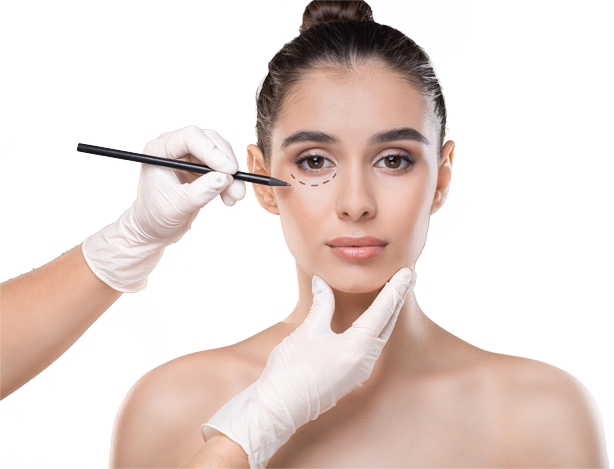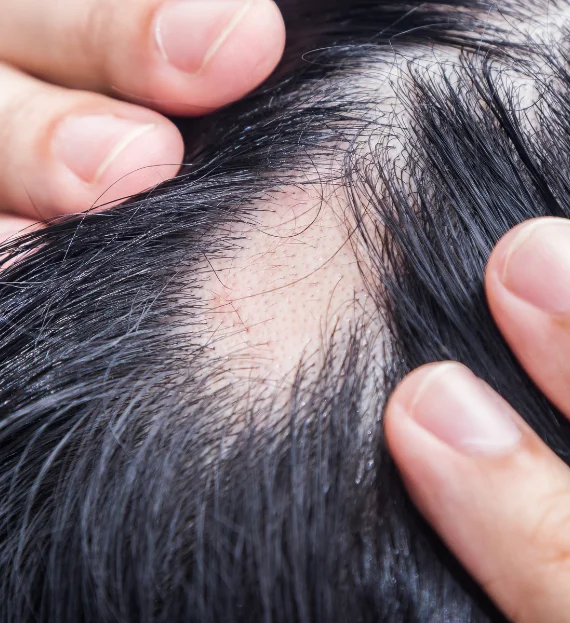Alopecial Areata treatment
Alopecia areata is an autoimmune disorder where scalp hair fall is seen in a round patchy manner. Here, one’s won immune system attacks the hair follicle resulting in hair fall. Currently, symptoms of the alopecia areata can be managed but cannot be cured with following treatment –
Topical Corticosteroids: These steroids available as cream, ointments, or foam are applied directly over the affected scalp area. The steroid help in controlling the inflammation and suppressing the immune system which in turn help in promoting the hair regrowth. This is one of the most commonly recommended treatment for alopecia areata.
Intralesional Corticosteroids: in this treatment the corticosteroid injections are injected directly into the affected scalp area. It has been found to be very effective but also cause the side-effects like skin thinning and discolouration. Hence, it is recommended to severe cases only.
Topical Immunotherapy: These are the chemicals that are capable of suppressing the immune system and restricting its action against the scalp skin. The allergic reaction caused by it triggers or stimulates hair regrowth.
Apart from medical treatment, patients can consider other methods too for aesthetic purposes like wearing wigs, changing the hairstyle to conceal the hair loss patch, using hair extensions, etc.
The healthcare provider will formulate the most appropriate treatment for controlling hair loss and influencing hair regrowth and inform the risk and benefits of each treatment before initiating the treatment.
Faq
Frequently Asked Questions
A. No. Currently, there is no known cure for alopecia areata condition. Some treatments are available for managing the symptoms and promoting the hair regrowth.
A. The time taken by the treatment depends not only on the type of treatment but also on the individual person’s response to that treatment. It varies from person to person. Some people may show up hair regrowth within a few weeks whereas some may take a few months for it.
A. Yes. The alopecia areata treatment has side effects. The topical application of corticosteroids can cause irritation and thinning of skin in the affected area whereas the intralesional corticosteroid can cause discoloration apart from skin thinning. The healthcare provider will inform the potential risk and benefits of any recommended treatment to the patient for his choice.
A. Alopecia areata is an auto-immune condition where the exact cause has not been understood completely. Stress may act as a triggering factor for it but cannot be pointed out as the causative factor
A. While none of the studies has established a connection between certain types of diet and alopecia areata. Research has shown that nutrients like Vitamin D, Omega-3 fatty acids, etc help in hair health. Hence, healthcare providers do suggest diets or supplements that are rich in them for promoting hair health and regrowth.






